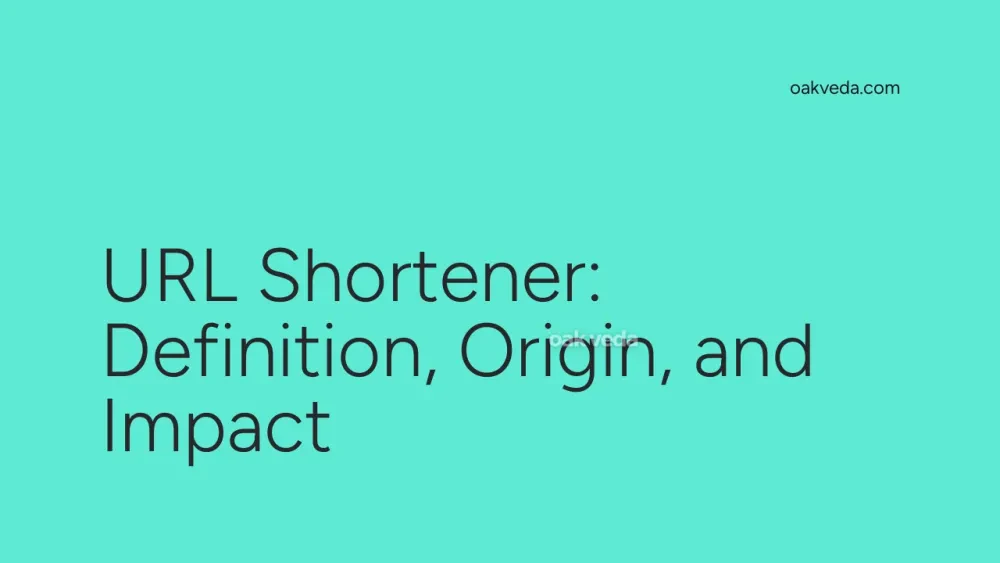
What is a URL Shortener?
A URL shortener is a powerful online tool that transforms long, complex web addresses into concise, easy-to-share links. These shortened URLs redirect users to the original, longer web address when clicked. This technology has become an integral part of social media marketing and online communication, allowing users to share links more efficiently across various platforms.
Origin and Development of URL Shorteners
The concept of URL shortening emerged in the early 2000s as a response to the growing complexity of web addresses and the character limitations imposed by some online platforms. TinyURL, launched in 2002, was one of the first widely-used URL shortening services. As social media platforms like Twitter gained popularity, with their strict character limits, the demand for URL shorteners skyrocketed.
How URL Shorteners Work
URL shorteners operate through a simple yet effective process:
- A user submits a long URL to the shortening service.
- The service generates a unique, short code or alias.
- This code is appended to the shortener's domain (e.g., bit.ly/uniquecode).
- When someone clicks the shortened link, they're redirected to the original URL.
This redirection happens almost instantaneously, providing a seamless user experience.
Types of URL Shorteners
There are several types of URL shorteners available:
- Generic shorteners: Services like Bitly and TinyURL that work with any URL.
- Platform-specific shorteners: Built into social media platforms like Twitter's t.co.
- Custom shorteners: Allow brands to use their own domain for shortened links.
- Branded shorteners: Offer customizable link endings for brand recognition.
Popular Examples of URL Shorteners
Some of the most widely-used URL shortening services include:
- Bitly: Known for its robust analytics and custom link options.
- TinyURL: One of the oldest and simplest shorteners available.
- Ow.ly: Integrated with Hootsuite for social media management.
- Rebrandly: Offers custom domain options for branded short links.
- Later's Link in Bio: A specialized tool for Instagram and TikTok link sharing.
Impact of URL Shorteners on Social Media Culture
URL shorteners have significantly influenced social media culture and user behavior:
- Improved sharing: They've made it easier to share links within character-limited posts.
- Enhanced aesthetics: Short links look cleaner and more professional in social media posts.
- Tracking and analytics: Many shorteners offer click tracking and audience insights.
- Cross-platform compatibility: Shortened links work well across various social media platforms.
Controversies Surrounding URL Shorteners
Despite their benefits, URL shorteners have faced some controversies:
- Security concerns: Shortened links can mask malicious URLs, potentially leading to phishing attacks.
- Link rot: If a shortening service shuts down, all its shortened links become inaccessible.
- Privacy issues: Some services track user data, raising privacy concerns.
- SEO impact: There's debate about whether shortened links affect search engine rankings.
How Brands and Influencers Use URL Shorteners
Brands and influencers leverage URL shorteners in various ways:
- Social media marketing: To fit links into character-limited posts and track engagement.
- Email campaigns: For cleaner, more clickable links in email bodies.
- Offline marketing: To create memorable, easy-to-type URLs for print ads or billboards.
- Analytics: To gather data on click-through rates and audience behavior.
- A/B testing: To compare the performance of different links or content.
Future Trends Related to URL Shorteners
The future of URL shorteners is likely to involve:
- Enhanced security features: To address concerns about malicious links.
- Improved analytics: Offering more detailed insights into user behavior.
- Integration with AI: For predictive analytics and personalized link suggestions.
- Blockchain technology: To create more secure and transparent shortening services.
- Increased focus on branded links: As companies seek to maintain brand visibility.
FAQs about URL Shorteners
-
Are URL shorteners safe to use? Most reputable URL shorteners are safe, but users should be cautious when clicking shortened links from unknown sources.
-
Do shortened links expire? It depends on the service. Some links last indefinitely, while others may expire after a certain period.
-
Can I customize my shortened URLs? Many services offer customization options, allowing you to create branded or memorable short links.
-
Do URL shorteners affect SEO? While there's some debate, most experts agree that using reputable URL shorteners doesn't significantly impact SEO.
-
Are there any alternatives to URL shorteners? Some alternatives include using your own domain for short links or utilizing social media platform's native link-sharing features.
In conclusion, URL shorteners have become an essential tool in the digital marketer's arsenal. They offer a simple yet effective way to share links, track engagement, and improve the overall user experience across social media platforms. As technology evolves, we can expect URL shorteners to adapt, offering even more sophisticated features to meet the changing needs of online communication.
You may be interested in:

